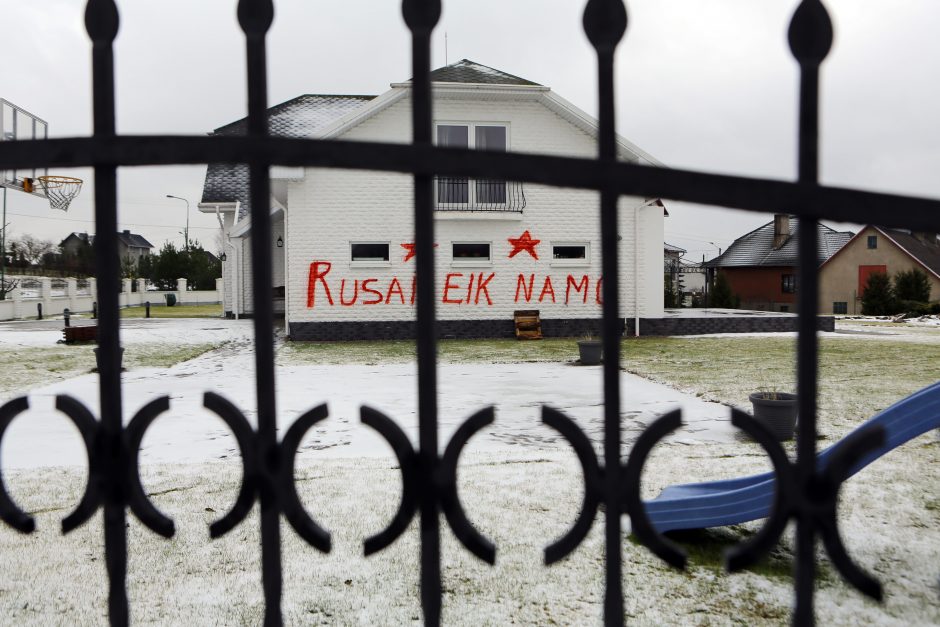- March 6, 2019
- 516
Evelina Dobrovolska: Lithuania should focus on the matter in hands

Lithuania has committed to respect and defend human rights and freedom, create equal conditions for the self-expression and culture equality of citizens of all nationalities by ratifying The Framework Convention for the Protection of National Minorities without reservation on the 23rd of March 2000.
Recommendations are repeating
For the purpose of this Convention, the Lithuanian authorities are obliged to report on the legal and other measures taken to implement the provisions of the Convention once per every five years. Based on this report and additionally gathered information, the Advisory Committee draws conclusions and recommendations from the Council of Europe. The European Foundation of Human Rights provides alternative reports to the Council of Europe.
“The Advisory Committee does not set deadlines but indicates the direction where to move. There are no sanctions for not following the recommendations immediately, however, if the same recommendations are repeated each time, the committee can turn to Lithuania asking for clarification. From the last insights we see that some recommendations are being repeated. This shows that Lithuania should focus on the matter in the hands”, said Evelina Dobrovolska, a lawyer at the European Foundation for Human Rights.
According to her, the Advisory Committee identifies both positive and negative findings in each report. The restoration of the Department of National Minorities is seen as a positive change, as well as the Lithuanian legal regulation on the prohibition of discrimination.
Reports are not published
“Nonetheless, the Advisory Committee calls on Lithuania to grasp the overall legal regulation and funding of the activities of national minorities. So, there are areas where progress is being made and areas that are tendentiously not solved”. According to the Framework Convention for the Protection of National Minorities has been inspected by the aim of making minorities better, but the problem is that national minorities themselves do not know that such reports are being prepared.
“The Department of National Minorities should inform the public upon receiving such a report. Especially since some of the points, as we see, are about separated minorities: Roma, Poles, Russians and other groups. That is why the report should be translated into minority languages, as national minorities are aware of this. Or at least in Lithuanian. Currently, the recommendations are in English only. This is an issue.” E. Dobrovolska notes that the Department has not even been able to submit the report in time for 2018. It was late for half a year.
According to the lawyer, a significant change in the report of this Advisory Committee is that not only the Poles in the Vilnius region and the Roma are mentioned, but also national minority in Kaunas: “Since Kaunas was mentioned this year, we see that the attitude is expanding and here we have a specific problem. I think this international report is very significant for the Kaunas government, especially since it is already the basis for national minorities when they talk to the government.”
Avoid talking on trolleybuses
In its report, the Advisory Committee noted that the current geopolitical situation and events such as the annexation of Crimea and the conflict in Ukraine cause repercussions in public discourse on minority issues in Lithuania. This was especially noticeable in the conversations not only with the representatives of the Russian, but also the Polish, Ukrainian and Belarusian minorities. For example, representatives of the Russian national minority stated that events in 2014 caused tension within the community and even in families. Some have reported a certain anti-Russian atmosphere and that Lithuanian media do not always clearly distinguish “Russia as a country from us as a minority”.
Public opinion on Russian speaking people seems to be diverse in different regions. Some of the interlocutors in Kaunas said that they avoid talking in Russian on the street or in public transport, but it seems to be different in Vilnius. Representatives of some minorities mentioned the influence of Russian state television not only on the representatives of the Russian, but also on the Polish community. Young people belonging to the Russian-speaking minorities said they were disoriented due to conflicting information being broadcast on Russian and Lithuanian television.
During visit on March 2018, the Advisory Committee proved that both the government and most national minorities had made efforts at the time to separate the issues of domestic minority policy from bilateral relations. 47 representatives of Russian minorities emphasized the fact that they consider themselves primarily Lithuanian citizens and were primarily interested in the dissemination of culture and language.
Excluded from “Kaunas 2022”
Some representatives of the Polish community mentioned that the discourse included portraying national minorities, including Poles, as a “fifth column” and questioning their loyalty to Lithuania. It seems that these days this debate has been disrupted, but the Advisory Committee notes with regret that some representatives of national minorities felt that they had not been adequately involved in the celebrations of the 100th anniversary of the restoration of independence in Lithuania in 2018, which would really mean a missed opportunity.
The Advisory Committee learned that some minority representatives in Kaunas also felt inadequately involved in the preparations for the festivities to be held in the city as Kaunas will be the European Capital of Culture in 2022. In the opinion of the Advisory Committee, it would be logical to actively use any opportunity to show that the diversity of national minorities is valued and at the same time considered to be an integral part of the whole Lithuanian society.
Translated by Dominika Kownacka within the framework of a traineeship programme of the European Foundation of Human Rights, www.efhr.eu.

